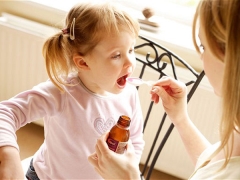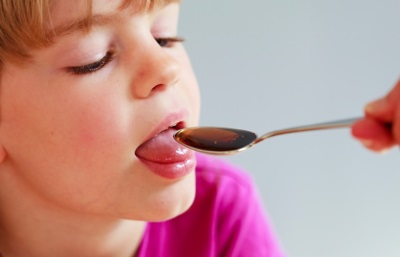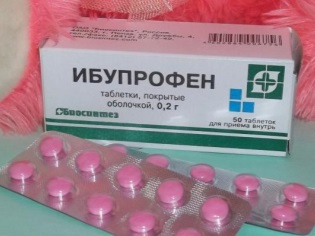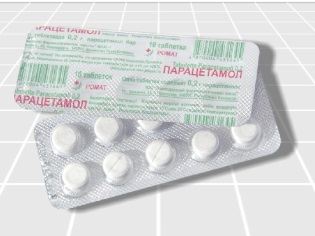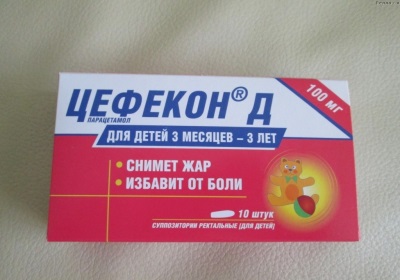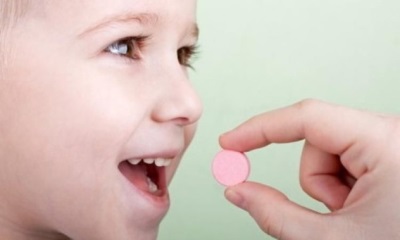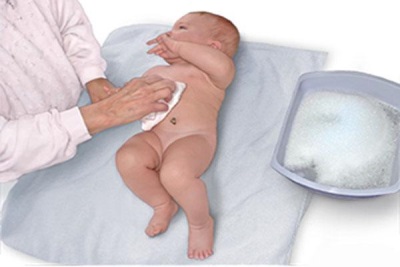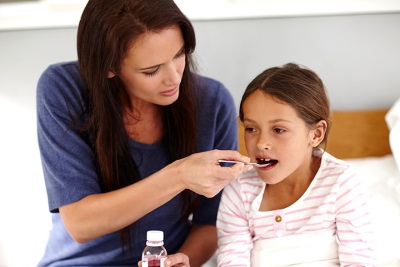Antipyretics for children
The heat signals the parents that the child is sick, but many adults are lost and do not know how to act properly to help the child with a fever. Some immediately decide to give antipyretic, not waiting for high numbers on the thermometer, others are afraid to give drugs, believing that at high temperatures, bacteria and viruses will die faster and recovery will come sooner. Should I use antipyretic to reduce the temperature of the baby? In what situations their use is necessary and what drugs can be given to children?
Does high temperature really produce immunity?
Conducted scientific studies confirm the effect of elevated temperature on the rate of recovery in some infections. During a fever in the body of a child, substances are produced in large quantities, inhibiting viruses and other infectious agents, among which there is interferon. At elevated temperatures, phagocytosis is activated and more antibodies are produced.
However, this is not the case with all children and not with all infections, and sometimes the harm from high fever is much greater than its help in a quick cure.
When do you need to beat down the temperature?
In more cases, it is not recommended to shoot down elevated temperatures of less than +39 degrees, however, there are situations when it is worthwhile to give a febrifuge and even with a slight increase in numbers on the thermometer:
- At risk of seizures, if the child has had bouts of febrile seizures in the past or there are diseases of the nervous system.
- In case of serious diseases, for example, in the presence of pathology of the cardiovascular system.
- In babies up to 2-3 months of age.
- When a child is very hard to suffer fever, complains of severe headaches, aching muscles, poor health.
Also note, if a child has a high fever and abdominal pain, it is not necessary to give antipyretic drugs before the arrival of the emergency doctor, so as not to affect the diagnosis.
Forms
Antipyretic drugs are available in the following forms:
- Rectal candles.
- Syrup.
- Chewable tablets.
- Potion
- Tablets in the shell.
In liquid forms, a faster effect on the child is noted. When a syrup is given to a baby, the temperature begins to decrease after 20-30 minutes. In candles that are injected into the rectum, the action begins later (after 30-40 minutes), but it is longer.
Candles are preferable in cases of fever, occurring with bouts of vomiting, as well as difficulties with swallowing. In addition, they are more in demand for use in infants during the first months of life, since it is problematic to give liquid medicine to such children. The choice falls on the candles and in the case when the child has a tendency to allergies, because the tablets and syrups for flavoring and taste added different chemical compounds.
Overview of the most popular medicines
In childhood, the main drugs used to reduce the temperature are paracetamol and ibuprofen. They are produced by many pharmaceutical companies in various forms and under various names. The effect of these drugs is well studied and tested in a large number of studies. In addition, they are sold without a prescription in most countries of the world. Nimesulide is also used to treat older children.
Drug name | Release form | At what age can you apply | Active substance | Mode of application | Features of use |
Suspension | From 1 month | Paracetamol | Inside | In children up to 3 months is used only when prescribing a doctor. The product is not diluted with water, and washed down. | |
Paracetamol | 2.4% syrup | From 3 months | Paracetamol | Inside | Medicine is given before meals. Babies can be added to the bottle by mixing with water. |
Panadol | Suspension | From 3 months | Paracetamol | Inside | Shake before use. |
Panadol | Candles | From 3 months | Paracetamol | Rectally | Apply up to 3 times a day. |
Syrup | From 1 month | Paracetamol | Inside | It can be diluted with juice, water, milk, or given undiluted. | |
Efferalgan | Candles | From 3 months | Paracetamol | Rectally | Available candles with different dosages - 80, 150 and 300 mg of active ingredient. |
Candles | From 1 month | Paracetamol | Rectally | To calculate a single dose take into account the weight of the child. Often prescribed once with increasing temperature after administration of the vaccine. | |
Suspension | From 3 months | Paracetamol | Inside | Accept after eating after 1.5-2 hours. The drug is not diluted, and washed down with water. | |
Ibufen | Suspension | From 1 year | Ibuprofen | Inside | The drug is shaken before use and not diluted. |
Nurofen | Suspension | From 3 months | Ibuprofen | Inside | The dose is calculated based on the weight of the child. |
Nurofen | Candles | From 3 months | Ibuprofen | Rectally | The interval for the introduction of candles ranges from 6 to 8 hours. |
Children's Motrin | Suspension | From 2 years | Ibuprofen | Inside | The effect of the drug lasts 8 hours. |
Nise | Pills | 12 years old | Inside | Contraindicated in children under 12 years. | |
Powder bags | 12 years old | Nimesulide | Inside | Before use, the powder from the bag is dissolved in 100 ml of water. The finished solution can not be stored. |
Comparison of ibuprofen and paracetamol
Ibuprofen | Paracetamol |
May cause side effects more often. | More secure. |
Can be applied from 3 months. | It can be applied from 1 month. |
Pronounced and prolonged antipyretic effect. | Less lasting antipyretic effect. |
There is an analgesic effect. | There is an analgesic effect. |
There is an anti-inflammatory effect. | Very mild anti-inflammatory effect. |
Begins to act after 20-30 minutes. | It begins to act in 40-60 minutes. |
Valid for 6-8 hours. | Valid until 4 hours. |
Single dose - from 10 to 15 mg per 1 kg of child weight. | Single dose - from 5 to 10 mg per 1 kg of child weight. |
A day, you can take a maximum of 40 mg per 1 kg of baby weight. | A day, you can take a maximum of 75 mg per 1 kg of baby weight. |
Affects the mucous membrane of the digestive tract. | Relatively harmless to the gastric mucosa. |
Affects blood coagulation. | Does not affect blood clotting. |
To reduce the temperature in most cases you can do with paracetamol.
Funds by age
In the treatment of children, all medicines should be selected in accordance with age, which also applies to antipyretic drugs. In addition, in which drugs of this group there are age restrictions.
Newborns up to 3 months
In children of this age, the use of any medication, including antipyretic drugs, should be monitored by a doctor. Paracetamol, although this drug is used in infants from 1 month old, should be prescribed only by a pediatrician after examining the child. Ibuprofen-based drugs in babies younger than 3 months of age do not apply.Paracetamol in such babies is used mainly in the form of suppositories, as well as suspensions.
Breast children up to one year old
An increase in temperature in infants up to one year is often associated with teething, as well as a reaction to the introduction of a vaccine, but can also indicate an infectious disease.
Babies from 3 to 12 months are equally often prescribed as ibuprofen and paracetamol. Up to 6 months of age, suppositories are often prescribed, and older babies are given a remedy in the form of syrup.
From year to three
Babies older than 12 months can be prescribed as paracetamol, and drugs on the basis of ibuprofen. Often syrup is recommended for babies of this age, but rectal suppositories are also possible, especially in cases when the baby has vomiting or severe sore throat. If a child has symptoms of ARVI, paracetamol is usually prescribed, and in case of severe inflammation and pain, ibuprofen is prescribed more often.
Above 3 years old
At this age, the child may be given antipyretic drugs in the form of tablets, if the child can swallow them. There are also chewable tablets that a child should chew. Syrups and suspensions are also very popular when the temperature drops in children older than 3 years of age, because they are easy to dose, and thanks to the sweet taste, most children do not protest against such drugs.
From 6 years old
Since the dosage of antipyretic syrups at this age provides for a rather large amount of medication, children of school age are more often prescribed a tablet form.
From the age of 12, tablets containing nimesulide can be given, especially if the high temperature is accompanied by severe pain (this drug has a strong pain reliever act).
How to give antipyretic?
- Funds that reduce body temperature during fever, do not give a systematic. They are used only in cases of rising temperatures.
- Repeated administration of the antipyretic drug is allowed at least 4 hours after consuming the previous dose.
- Do not exceed a single dose of the drug.
- In one day it is allowed to use antipyretic drug up to 4 times.
- To reduce the irritating effect on the digestive tract, a febrifuge can be given to the child during meals or with milk.
Folk remedies
Traditional methods of reducing the temperature include the use of medicinal tea, which add a lime blossom, raspberry, cranberry. Such drinks have a diaphoretic and antiseptic effect, however parents should be given such tea very carefully (allergy is possible) and only as an addition to another drink.
Folk remedies such as rubbing a child’s body with vinegar or alcohol-containing liquids are not recommended by doctors, considering them dangerous for children's health.
Contraindications
Antipyretics cannot be prescribed for:
- Hypersensitivity;
- Ulcerative lesions of the digestive system;
- Severe kidney disease;
- Active and severe liver diseases;
- Bleeding in the digestive tract.
In addition, antipyretic drugs sold in a pharmacy cannot be used under the age of 1 month.
Possible side effects
Due to the large number of side effects and the risk of allergies, gastrointestinal lesions, brain and other organs, babies are not prescribed aspirin and analgin, but even the drugs approved for use have their negative effects. Thus, large doses of paracetamol have a damaging effect on the liver, as well as the kidneys.
Acceptance of ibuprofen may be accompanied by heartburn, nausea, rash, headaches, dizziness, edema, tinnitus, and other side effects. In rare cases, such a drug can seriously impair the function of the kidneys and adversely affect blood formation. Also among the rare side effects of ibuprofen include the appearance of gastric or intestinal bleeding.
When should I call a doctor?
Calling a doctor is recommended in all cases of raising the temperature of a child, since only a specialist can determine exactly what caused the fever, and then prescribe the necessary treatment. However, there are situations that require immediate medical attention.
Call an ambulance if the child has a fever and:
- He is drowsy and lethargic, refuses to drink and eat.
- Started an attack of convulsions.
- The baby has chronic diseases, especially heart disease.
- Keeps high for more than 3 days.
It is also important to call a doctor in case of side effects of drugs to reduce the temperature. A pediatrician's consultation is necessary when a rash, abdominal pain, edema, difficulty breathing, yellowing of the skin, darkening of the urine, lightening of feces, black feces and other warning symptoms occur. Seek medical attention even in cases where the child has already gone on an amendment, and then the temperature has risen again.
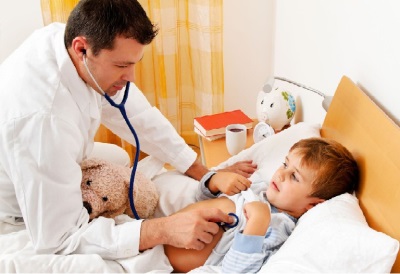
Tips for choosing
- If, in addition to the high temperature, the child has signs of inflammation or there is a pronounced pain syndrome, he should be given ibuprofen.
- If the baby has a high temperature in the first year of life, he should be given paracetamol as a safer drug.
- If you need to quickly help your baby, choose ibuprofen suspension. In this form of this antipyretic effect will come faster.
- If a child has previously experienced allergic reactions, it is better to choose suppositories for him, since they lack chemical additives that can cause allergies.
